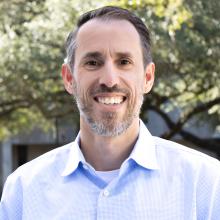Founded in 1873 in the context of the intellectual debate about the "social question," the Verein für Socialpolitik has since developed into the largest professional association of economists in the German-speaking countries. During the same period, the economies of Germany, Austria and Switzerland have experienced an unprecedented growth trajectory: despite crises, wars and institutional breaks, real incomes per capita have increased more than tenfold. In its three keynote talks, this year's core conference — marking the 150th anniversary of the Verein — will look back on this remarkable intellectual and economic development.
Keynotes
The presentation by Dietrich Vollrath (University of Houston) allows a cautious look into the future: he discusses the origins of the recent slowdown in economic growth and what that might imply for future growth in Germany and the rest of the developed world. Charlotte Bartels (DIW) will address the issue of economic inequality that moved the association's founders. Her talk investigates the long-run dynamics of income and wealth distributions, particularly the role of economic growth. Finally, the talk by Albrecht Ritschl (London School of Economics) takes a tour through the Verein's history as an academic social policy club, caught between contradictory policy goals and a conflicted relationship with emerging neoclassical economics.
Monday 25 Sept. / 11:30 Keynote Dietrich Vollrath
The Complementary Economy
Structural changes in developed economies like Germany have led to more complementarity in both production and consumption. Complementarity across inputs on the production side and complementarity across products on the consumption side has implications for the rate of economic growth and the sensitivity of that growth to shocks. In short, economic growth will almost surely remain quite low despite substantial technological achievements. Germany provides a notable example both because of its wealth (leading to changes in consumer preferences) and its integration to the world economy (involving long supply chains), but also because of the recent invasion of Ukraine, which helped demonstrate how relevant substitution of inputs (e.g. energy) are for economies.
Monday 25 Sept. / 13:45 Keynote Charlotte Bartels
Change and Continuity: Tracing 150 years of discourse on inequality and growth
How has inequality evolved since the 19th century? What are mechanisms shaping the distribution of income and wealth? How does inequality affect growth? Charlotte Bartels will walk us through 150 years of knowledge production and interpretation battles.
Tuesday 26 Sept. / 14:00 Keynote Albrecht Ritschl
New Economics for a New Nation: German Economists and the Social Question
The talk by Albrecht Ritschl takes a tour through the Verein's history as an academic social policy club, caught between contradictory policy goals and a conflicted relationship with emerging neoclassical economics.
Panel of the Core Conference
Wednesday 27 Sept. / 12:15
The core conference panel will address the question of what the "sociale Frage" means in the 21st century.
- Simon Jäger (IZA)
- Monika Queisser (OECD)
- Albrecht Ritschl (London School of Economics)
- Philippa Sigl-Glöckner (Dezernat Zukunft)
Moderation: Lars Weisbrod (Die ZEIT)

